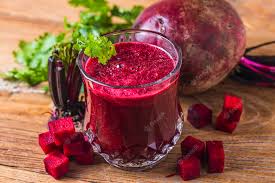Chukandar/Beet Root for Health-A Nutrient-Packed Root Vegetable-2023
Chukandar/Beet Root
Chukandar, sometimes called Beetroot, is a colorful, Nutrient-dense root vegetable in the Chenopodiaceae family. Chukandar/Beet Root which has a deep red colour and a rich, earthy flavour, is becoming more and more popular in cooking as well as for its many health advantages.

Beets are regarded as a cooling food. According to their effects on the body, some meals are classified as “warming” or “cooling” in traditional medicine. Since beetroot is frequently categorized as a cooling food, it is appropriate for consumption during warmer months or by people who want to include cooling foods in their diet.
Chukandar/Beet Root Powder:
A handy approach to add the health benefits of Chukandar/Beet Root to a variety of foods is to use beetroot powder, which is a dehydrated form of the vegetable. It works well as a natural food coloring or as an addition to soups and smoothies. As a versatile and nutrient-dense addition to the diet, the powder keeps a large portion of the nutrients included in fresh beetroot.
How to Consume Chukandar/Beet Root:
To optimism its nutritional value, beetroot can be eaten in a variety of ways:
Raw: Grated beetroot makes a crisp, reviving snack when it’s eaten on its own or added to salads.
Juice: A well-liked and nourishing beverage is fresh beetroot juice. It tastes good either eaten by itself or blended with other fruits and vegetables to create a delightful combination.

Cooked: Beetroot can be used to soups, stews, or side dishes after being boiled, roasted, or steamed.
Smoothies: A tasty method to incorporate beetroot into your diet is to add it to smoothies that combine fruits and yoghurt.
Pickled: Pickled beetroot is a tasty side dish or condiment for salads and sandwiches.
Follow Our Digiknowledge.co.in Page for Latest update about Bikes, Cars, Sports, , Life style and many more.
Benefits of Chukandar/Beet Root:
Multivitamin and Mineral-Rich: Packed with vital vitamins and minerals, beetroot is a nutritional powerhouse. Among the nutrients it provides folate, manganese, potassium, iron, and vitamin C which are beneficial to general health .
Dietary Fibre: Beetroot is a great source of dietary fibre that assists in regular bowel movements and supports digestive health. Because it makes you feel fuller for longer, the fibre content also aids in maintaining a healthy weight.

The antioxidant properties of beets, such as betalains, aid in the body’s defence against free radicals. Both inflammation and the chance of developing chronic illnesses may be decreased as a result.
Blood Pressure Regulation: Research has linked the nitrates in beetroot to the control of blood pressure. Beetroot consumption may improve blood flow and maybe reduce blood pressure by dilating blood vessels.
Increased Exercise Performance: Research indicates that beetroot nitrates may promote the body’s use of oxygen during exercise, resulting in increased stamina and performance.
Drawbacks of Chukandar/Beet Root:
Despite the many health advantages of beetroot, there are a few things to think about and possible disadvantages:
Beetroot’s rich crimson hue has the potential to discolour hands, clothing, and kitchen surfaces. When preparing beetroot, it’s best to handle it carefully and wear gloves to prevent stains.
High Sugar Content: Beets provide natural sugars along with fibre, but people with diabetes who are watching their sugar intake should be careful while consuming beets.
Adverse Effects of Chukandar/Beet Root:
Low Blood Pressure: If you already have low blood pressure, you should be cautious even though beetroot may help many. In addition to lowering blood pressure, beetroot’s nitrate component can cause lightheadedness or fainting.
Kidney Stone Formation: The high oxalates content of beetroot may put sensitive people at risk for kidney stones. Consuming beets may be best avoided by those with a history of kidney stones.
Allergies: A beetroot allergy may cause rashes, swelling, or itching in certain people. You should get medical help if you experience allergic reactions.
Diabetes management: People with diabetes should watch how much beetroot they eat because of its natural sugar content, even though it can be a healthy element of a diet for many. Normal blood sugar levels.
Without a doubt, chukandar, or beetroot, is a nutritional powerhouse with a host of health advantages. Beetroot has several benefits, ranging from its high nutrient content to its ability to control blood pressure.
Nonetheless, before include beetroot in their meals, people with certain medical disorders, such as diabetes, kidney stones, or low blood pressure, should use caution and speak with medical experts.
Beetroot can be enjoyed as part of a varied and balanced diet to maximize its benefits and minimize any potential negatives.
Does beetroot help with female hormones?
In terms of the hormone imbalance issue, beetroot eating is quite advantageous. Beetroot is a vegetable and salad ingredient that can include in diet. Body’s hormone levels remain balanced and under control when you eat these vegetables.
Is beetroot good for beauty?
Juice from beetroot is rich in antioxidants and vitamin C, which can lessen the harm that free radicals do to the skin. Improved skin health may result from this, including a decrease in wrinkles, dark patches, and other ageing symptoms.
Does beetroot give glow?
Beetroot’s iron helps repair damaged cells from the inside out, instantly enlivening drab skin. Additionally lightening the skin tone, beetroot also cleans the skin’s outermost layer of dead skin cells and debris.
Does beetroot help hair growth?
Protein, vitamin A, and calcium are minerals found in beets that support healthy hair growth.




Discover the best techno track of 2023, n°1 DJ in the world!
https://open.spotify.com/intl-fr/track/1IeVfrhcG2dpyuR6Vp5cuc
Thank you! I’m glad you found the information helpful. If you have any specific questions or need further clarification on any of the points, feel free to ask. I’m here to help!